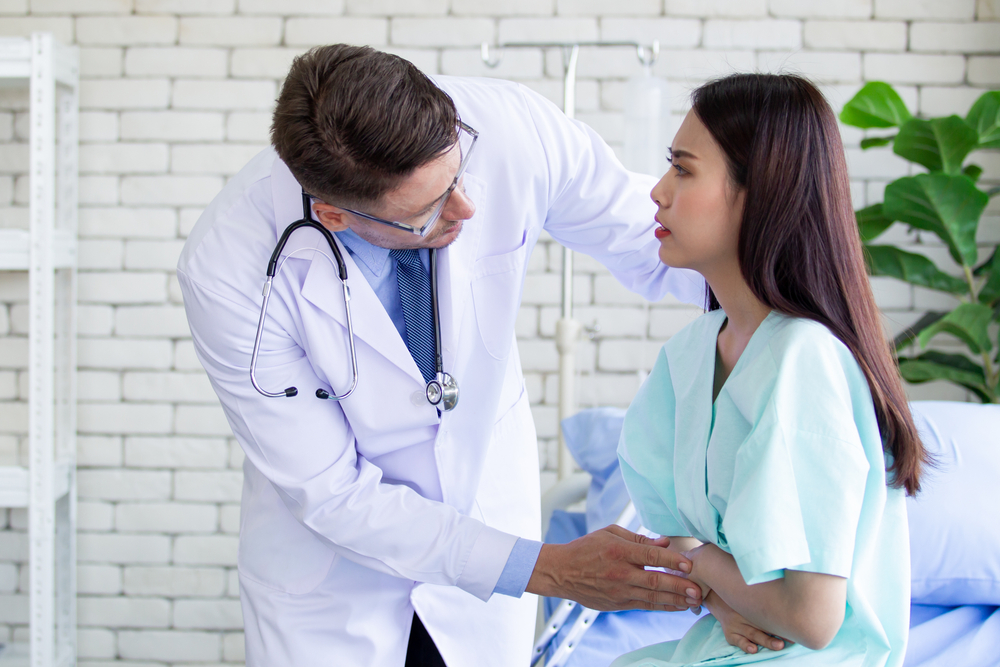
Have you ever felt an extra weight and a slight pressure in your abdomen? As you may know, fibroids often occur in the female reproductive system and are a condition many women experience in their lifetime.
Fibroids are benign tumors that can range in size and cause various symptoms. Though they are usually found in the uterine region, they can also occur in the ovarian area. This does not mean they still cannot be painful, uncomfortable, or cause undesirable symptoms. Many women experience it, and multiple treatments are available depending on one’s condition.
Fibroids can not cause cancer and rarely become cancer later.
If you are or suspect you might be living with fibroids, we are going to provide you with everything you need to know about them in this post. To schedule an exam in the Idaho Falls area, please contact us today.
Causes
Uterine fibroids are unclear as to their exact cause, but there is evidence that a combination of genetic, hormonal, and environmental factors may be responsible. Fibroids tend to run in families, so if your mother had them, there’s a good chance you will too.
Hormones may also play a role, as fibroids contain more receptors for estrogen and progesterone than other uterine muscle cells. They may also be present during pregnancy and shrink or disappear after giving birth.
Symptoms of Uterine and Ovarian Fibroids
Your doctor will often diagnose fibroids during a pelvic exam, though they sometimes aren’t apparent until symptoms arise. Fibroids are usually asymptomatic, but some women experience symptoms such as:
Aches or Pains in the Back or Legs
Fibroids can grow over your bladder, uterus, rectum, and intestines. The crowding of these areas due to the fibroids can cause pressure on these organs and can lead to pain in your back or legs.
Heavy Menstrual Bleeding
Heavy menstrual bleeding is the most common symptom of fibroids. Women with heavy menstrual bleeding may have to change their tampons or pads every hour or two, and some have to use a pad or towel at night to absorb significant leakage.
Longer-Than-Average Periods
Fibroids can cause your periods to last longer than usual or make them heavier. You may also have cramps with your period. If you notice that your periods last longer than about a week on average, you should make an appointment with your doctor to see if you may be experiencing symptoms of fbiroids.
Pain or Pressure in the Pelvic Region
Women with fibroids often experience pain or pressure in their pelvic region. This can be caused by growths pressing against other organs such as the bladder, rectum, or urethra.
An Urge to Frequently Urinate
An urge to frequently urinate is a common symptom of uterine and ovarian fibroids. The tumors can press on the bladder, causing you to feel the need to pee more often.
Not Feeling Like Your Bladder Has Been Fully Emptied
Another common symptom of uterine and ovarian fibroids is a feeling that your bladder hasn’t been emptied. You may feel like you need to empty your bladder again soon after going to the bathroom, or you may notice difficulty emptying your bladder at all.
Constipation
Constipation is another common symptom of uterine and ovarian fibroids. It happens when the enlarged uterus puts pressure on the colon and prevents it from moving waste through as quickly as it should.
Treatment
If these symptoms above continue for more than one week, or if you experience sudden intense pain, visit your doctor.
Many fibroids do not require treatment unless you experience frequent symptoms like pain, menstrual irregularities, or bowel discomfort that can impact their quality of life. After diagnosis, typically with an ultrasound or MRI, treatment may be recommended. This can include:
Over-the-Counter Medications
Over-the-counter medications include ibuprofen, aspirin, naproxen sodium, and acetaminophen. These drugs often treat mild pain associated with uterine and ovarian fibroids. Iron supplements help build up your body’s stores of iron to improve overall health. They are also used to treat anemia caused by uterine or ovarian fibroids.
Birth control pills can help reduce the size of uterine fibroids by blocking estrogen production in the body. However, they do not treat ovarian fibroids and may cause them to grow larger over time if used for too long without taking a break from taking them every so often (such as when you’re trying to get pregnant).
Oral therapies like dienogest (a form of birth control) can help shrink fibroid tumors, and prescription sprays or injections can also help.
Surgery
In some cases, surgery may be recommended. The most common procedure is a myomectomy which can remove the fibroids without further damage to the uterine region. The surgeon may also discuss hysterectomy or embolization with you if you do not wish to preserve your reproductive organs for future family planning.
Menopause
Menopause refers to a natural phase of life that signifies the end of menstrual periods and fertility. It can be difficult for many women, but it also has some benefits. One of those benefits is that fibroids can shrink or disappear after entering menopause for some women.
Get Treatment for Fibroids in Idaho Falls
If you’re looking for the treatment of uterine and ovarian fibroids in Idaho Falls, call OBGYN Associates of Idaho Falls today. We are committed to providing the best OBGYN care to people in the Idaho Falls region.
We know that fibroids can be a source of stress and pain, but that doesn’t mean you have to suffer through them without help! Call us today to schedule an appointment with one of our expert physicians.




